Flexxon: From flash drives to world-first AI security: Home-grown firm’s success puts S’pore on global tech map
First published in The Straits Times on 4 February 2025.
Enterprise Singapore’s support in accessing new markets and securing intellectual property rights enables Flexxon to establish itself as a key player in the multi-billion dollar data storage industry.
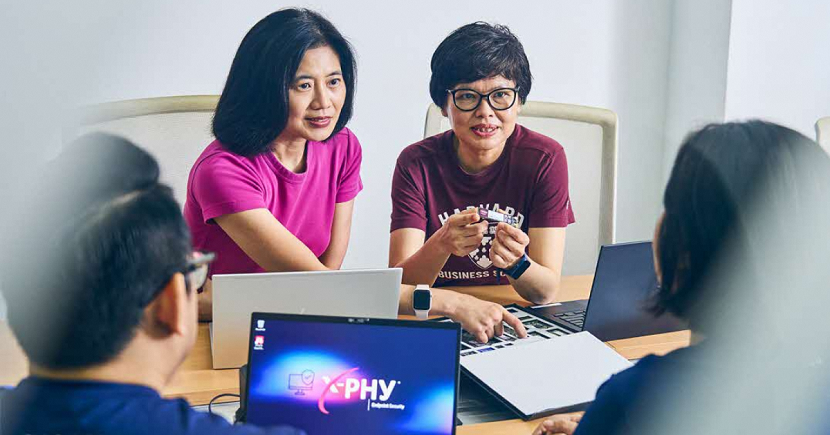
Presenting at the White House to government officials from 37 countries in 2022 marked a significant moment for Singapore entrepreneur Camellia Chan.
The co-founder and chief executive officer of cybersecurity and computer memory storage solutions firm Flexxon was in Washington to share her company’s breakthrough innovation at the Counter Ransomware Initiative (CRI) summit. CRI is a multilateral forum for member countries to develop new policies and processes to combat ransomware.
For Ms Chan, now 50, this global recognition reflected how far her company had come from its humble beginnings.
“The experience was very exciting because I was able to represent not just Singapore but also our innovation,” she says. “I was glad to have the opportunity to speak with people from around the world about our cybersecurity solutions.”
What started as a business distributing computer storage and memory components in 2007 had evolved into a cybersecurity innovator, driven by an understanding about the vulnerability of data storage hardware.
The turning point came in 2018 when one of her clients was hit by two ransomware attacks. At the time, Flexxon could not help as it was not in the cybersecurity field.
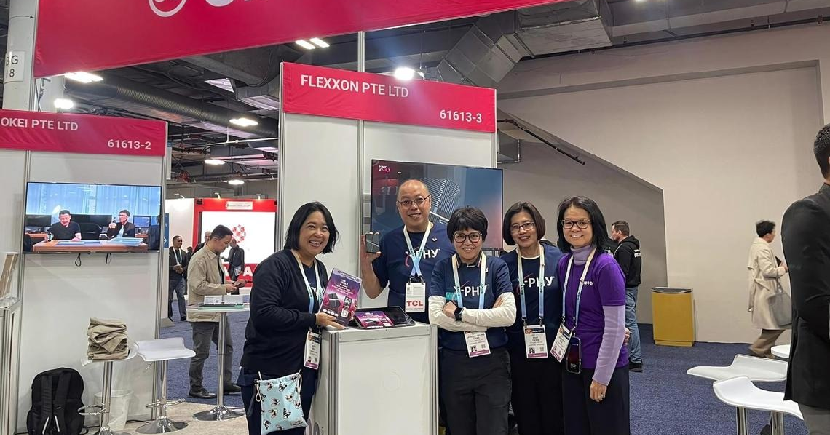
“We started to ask why there isn’t a solution that enables proactive detection within the data storage hardware,” says Ms Chan.
Her observation highlighted a critical weakness in existing cybersecurity systems – they could only protect against known threats, leaving users vulnerable to new forms of attacks.
This led Ms Chan and her team of engineers to develop X-Phy, which she describes as the world’s first embedded artificial intelligence-based security system.
The technology integrates artificial intelligence (AI) directly into data storage hardware, creating an additional layer of defence if security software fails to catch threats in time.
When it detects an attack, X-Phy automatically locks the electronic device and notifies users via email.
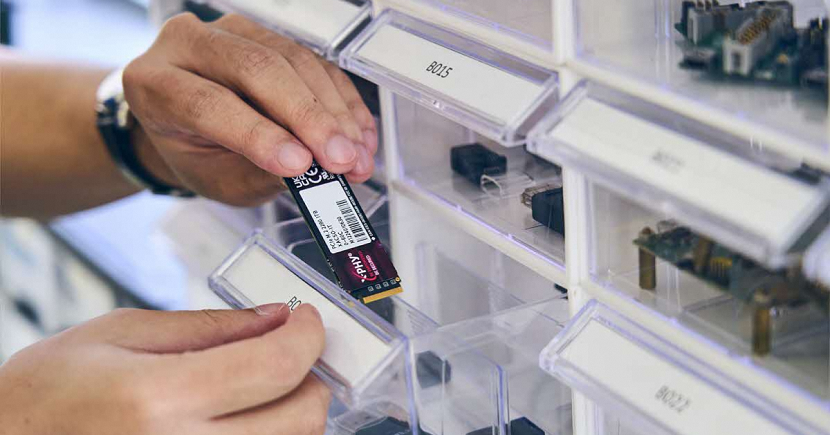
In critical situations, the system can also automatically delete sensitive data to prevent breaches.
“We’re targeting zero-day attacks,” says Ms Chan, referring to cyber threats that are so new that no protection against them yet exists. “Previously, when discussing virus prevention, we focused only on software, overlooking the importance of protection in hardware. X-Phy has achieved combining both, creating an industry first.”
This application can be used across industries. For instance, in healthcare, X-Phy helps hospitals protect patient data from ransomware threats; while in banking, it safeguards sensitive financial data.
Protecting innovation with patents
Since its official launch in 2021, X-Phy has made waves in the industry and snapped up multiple awards, catapulting Flexxon to the forefront of the global cybersecurity scene.
A year later, Flexxon was a winner at the World Intellectual Property Organisation’s (Wipo) Global Awards in Geneva. It also won three awards at the Global InfoSec Awards at the RSA Conference in the US.
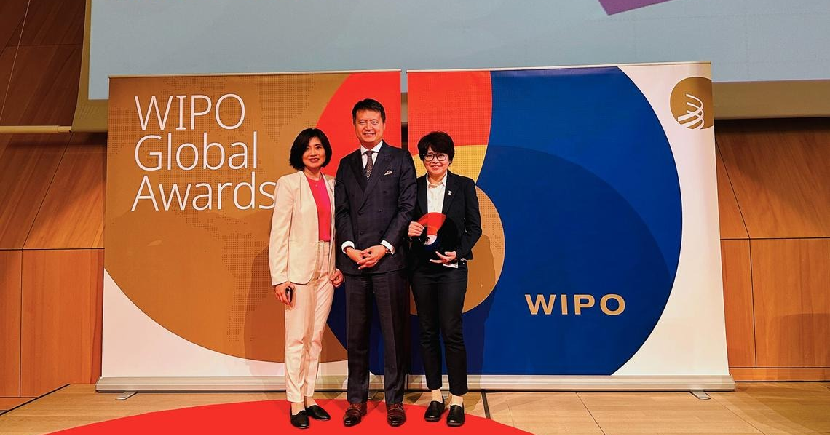
Its Wipo win was remarkable, especially since the company held no technology patents before 2019.
The company was just one of seven winners chosen from 548 nominees across 60 countries. “It showed that even a Singapore SME could compete at the global level,” says Ms Chan.
Today, it boasts 40 patents worldwide.
“In 2018, we attempted to file our first provisional patent, but it faced multiple rejections due to poor preparation by our team,” says Ms May Chng, 55, co-founder and chief operating officer of Flexxon. “That first patent took five years.”
The company also faced challenges protecting its brand logo.
“When we established our own brand, it was only natural to protect our trademark,” Ms Chng says. “We spent a six-figure sum with an intellectual property (IP) firm to file it globally, but within three months, we received a legal letter from an MNC.”
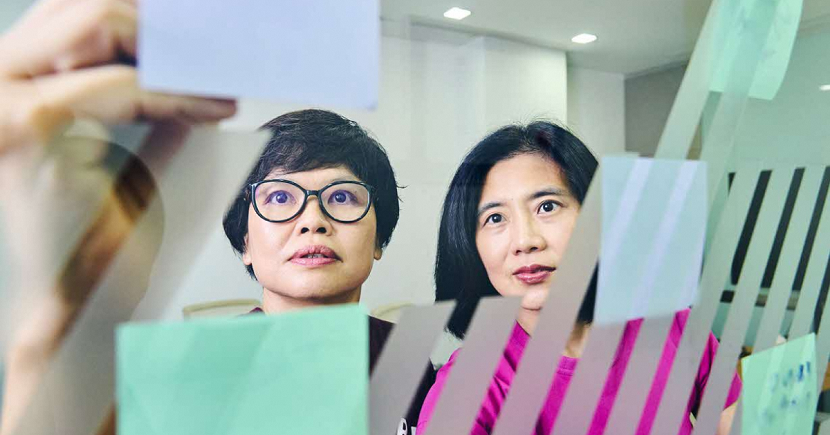
Flexxon was given just seven days to change its logo or face legal action in London. The company complied with the request to avoid a legal battle.
These lessons taught the co-founders that they needed professional help with their IP.
Enterprise Singapore (EnterpriseSG) stepped in, providing a grant that enabled the company to engage IP experts who guided them through the patent filing process. With this support, one of their US patents was granted in just seven months.
“Our US attorney told us that, in all his 10 years of experience, he’d never seen a patent approved so quickly,” says Ms Chng.
“We realised that IP, especially patents, is not a game reserved for the big boys with deep pockets and large IP teams. If an SME like Flexxon could do it, so can other tech SMEs.”
Establishing a global presence
With strong IP protection practices in place, Flexxon set its sights on establishing itself in the US, which represents half of the global data storage market worth over US$186.74 billion ($200 billion) in 2023.
In 2022, the firm participated in an EnterpriseSG-organised mission to the SelectUSA Investment Summit, an annual event organised by the US government that helps foreign companies expand into the US market.
There, it placed second at the summit’s start-up pitching competition and was later selected for Maryland’s Department of Commerce Global Gateway Soft Landing Programme to set up a subsidiary in the state.
“The US represents 54 per cent of the global data storage market,” says Ms Chan. “That’s why it was important for us to have a presence there.”
EnterpriseSG’s support extended beyond helping Flexxon enter the US market. As the firm prepared for global expansion, it participated in the agency’s Scale-Up programme to sharpen its growth strategy. The year-long programme helped the company refine its business model, develop a pricing strategy, and evaluate strategic partnerships with potential customers such as telcos and IT companies.
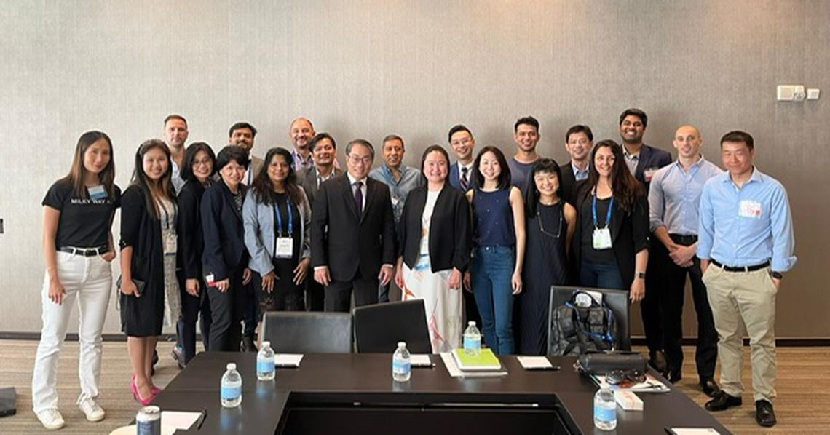
“We’re very thankful for EnterpriseSG’s help,” says Ms Chan. “When we needed to reach out to more countries, we would call them as they have offices in these locations. The EnterpriseSG team would listen and understand what type of partner we needed. Through them, we signed up key partners, such as RP Tech in India.”
With RP Tech, Flexxon gained a partner that supplies technology products to more than 700 locations across India. The agency also facilitated connections with other partners in Japan and India.
Today, Flexxon has 80 employees, with half of them based in Singapore and the rest spread across the US, China, Hong Kong, Taiwan, Malaysia and India.
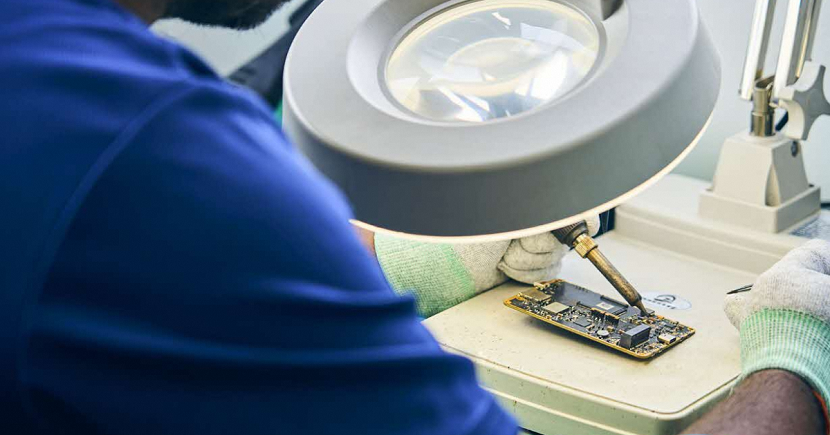
The company serves clients in the industrial, medical, automotive, aerospace, financial, government and military sectors. Last year, it achieved 15 per cent year-on-year growth with product sales exceeding 500,000 units.
The pivot from serving a niche market to targeting a broader cybersecurity audience required Flexxon to completely re-engineer its operations. The company had to simultaneously develop X-Phy, build partnerships and scale operations.
“We have a game-changing product, so for everything, we have to start from scratch again. Even the business model is different,” says Ms Chan. She is planning to offer “firmware as a service”, allowing customers to regularly upgrade their X-Phy hardware with new capabilities.
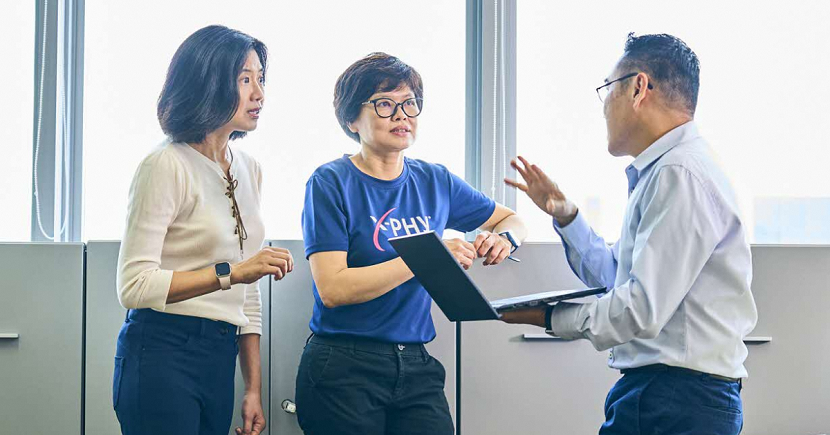
From selling computer memory devices to becoming a trusted and respected player in the cybersecurity industry, Flexxon’s journey represents more than just business success.
It demonstrates the potential of Singapore companies to innovate in the highly competitive global technology landscape. Ms Chng says: “We hope this will become the de facto standard that will change the cybersecurity landscape.”
This is part of a series showcasing how Enterprise Singapore empowers home-grown businesses in their defining moments of growth, helping them transform, innovate and go global. Find out more here.

